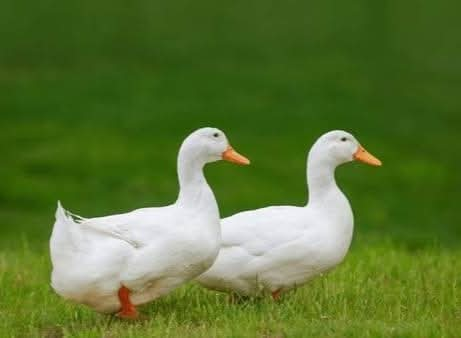Comprehensive Guide to Duck Farming and Its Business Potential In Nigeria
Comprehensive Guide to Duck Farming and Its Business Potential In Nigeria
Duck farming is a lucrative and sustainable agribusiness that offers numerous benefits for farmers, including high economic returns, low maintenance costs, and adaptability to various environments. Ducks are versatile animals that thrive in different climatic conditions, making them suitable for small-scale and commercial farming.
1. Why Choose Duck Farming?
High Demand: Duck meat and eggs are highly nutritious and widely consumed, with growing demand in local and international markets.
Adaptability: Ducks can thrive in diverse conditions, including wetlands, ponds, and dry lands, making them a viable option for farmers in different regions.
Low Investment: Duck farming requires relatively low capital compared to other poultry farming ventures.
Sustainability: Ducks play a role in ecological balance by controlling pests, feeding on waste, and fertilizing the soil through their droppings.
2. Types of Duck Farming
Egg Production: Breeding ducks specifically for eggs. Popular breeds include Indian Runner and Khaki Campbell.
Meat Production: Breeding ducks for meat, with Pekin and Muscovy ducks being the most common.
Mixed Farming: Combining egg and meat production.
Integrated Farming: Raising ducks alongside fish, rice, or other crops for mutual benefits.
3. Starting a Duck Farming Business
A. Planning and Setup
Select a Farming Model: Decide between intensive, semi-intensive, or free-range systems based on your resources.
Choose a Suitable Breed: Select breeds that align with your business goals (egg or meat production).
Location: Ensure a water source is available, as ducks thrive near ponds, streams, or artificial water bodies.
B. Housing and Environment
Ducks require simple housing to protect them from predators and harsh weather.
Maintain a clean and dry environment with proper ventilation.
Provide adequate space: Around 4-5 square feet per duck is ideal.
C. Feeding and Nutrition
Ducks are omnivores and consume grains, greens, and small aquatic organisms.
Provide balanced commercial feed to ensure optimal growth and production.
Allow ducks access to ponds or water bodies to forage naturally, reducing feed costs.
D. Breeding and Health Management
Maintain a male-to-female ratio of 1:5 for optimal breeding.
Ensure vaccination and regular health checks to prevent diseases like duck plague and cholera.
Isolate sick ducks to prevent the spread of diseases.
4. Business Opportunities in Duck Farming
A. Duck Products
1. Meat: Duck meat is a delicacy in many cuisines and commands high market value.
2. Eggs: Duck eggs are larger, more nutritious, and have a longer shelf life than chicken eggs.
3. Feathers and Down: Used in the textile industry for making pillows, jackets, and blankets.
4. Ducklings: Selling ducklings can provide additional income.
B. Value-Added Products
Processed duck meat (smoked, dried, or frozen).
Salted or pickled duck eggs.
Fertilizers from duck manure.
C. Integrated Farming
Rice-Duck Farming: Ducks help control pests and weeds in rice fields, reducing the need for chemical pesticides.
Fish-Duck Farming: Ducks fertilize the water for fish farming, boosting fish production.
5. Market Analysis and Strategies
A. Target Market
Local markets, restaurants, and hotels for meat and eggs.
Export markets, especially in regions where duck products are in high demand.
B. Marketing Strategies
Build relationships with local vendors and supermarkets.
Advertise through social media and local fairs.
Emphasize the nutritional value and organic nature of your products.
C. Pricing
Conduct market research to determine competitive pricing.
Offer discounts for bulk purchases to attract larger buyers.
6. Challenges in Duck Farming
Diseases: Regular vaccination and biosecurity measures are essential.
Predators: Ducks are vulnerable to predators like snakes and birds of prey.
Market Access: Rural farmers may face challenges in accessing larger markets.
Water Availability: Ducks need water for swimming and feeding, which may be scarce in some areas.
7. Tips for Success in Duck Farming
1. Start small and gradually expand as you gain experience.
2. Keep detailed records of production, expenses, and sales.
3. Join farmer cooperatives or associations for shared resources and market access.
4. Stay updated on best practices and market trends.
Duck farming is a rewarding venture with immense potential for profitability. With proper planning, efficient management, and market-oriented strategies, farmers can turn this agribusiness into a sustainable source of income while contributing to food security.
